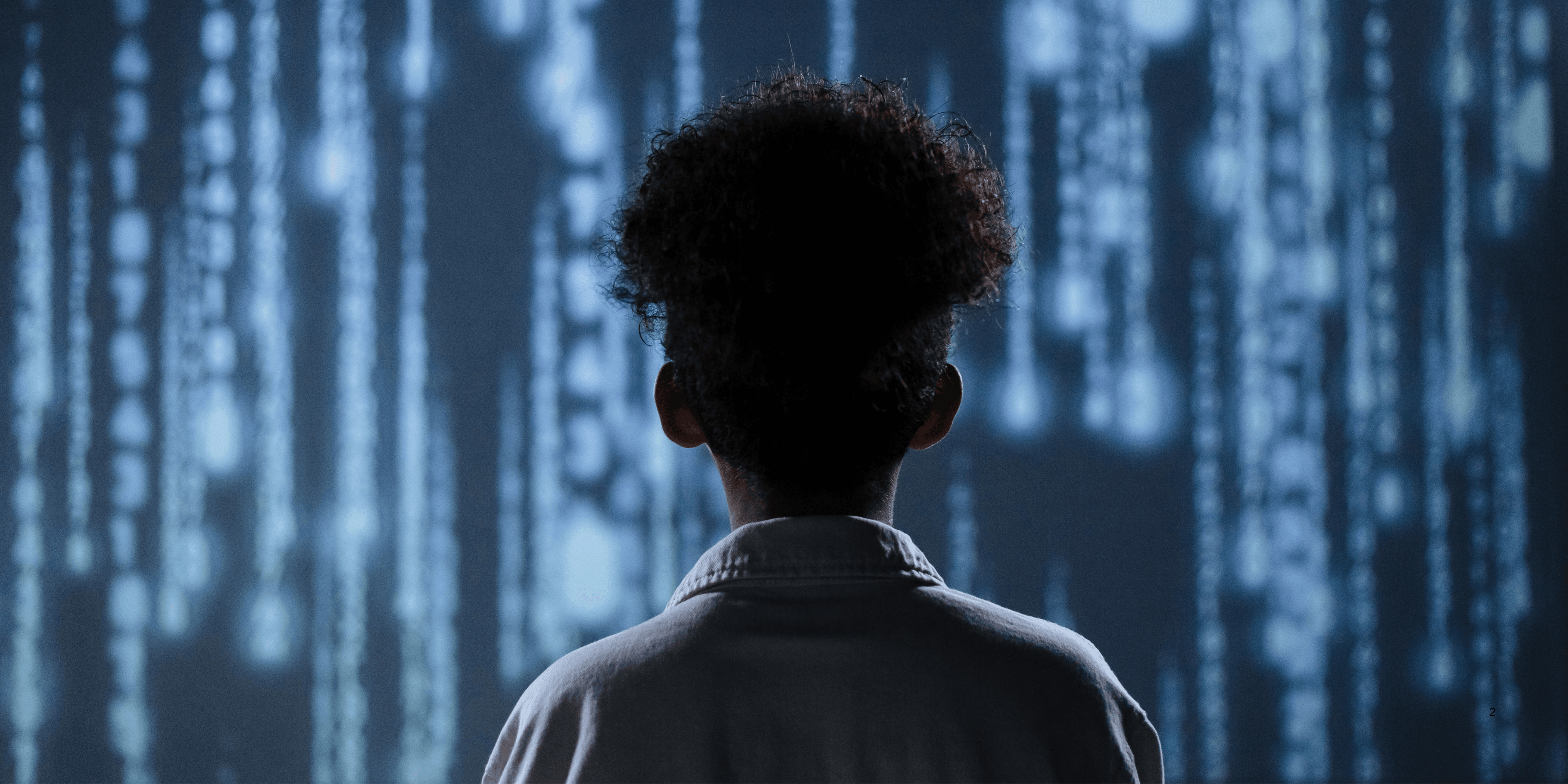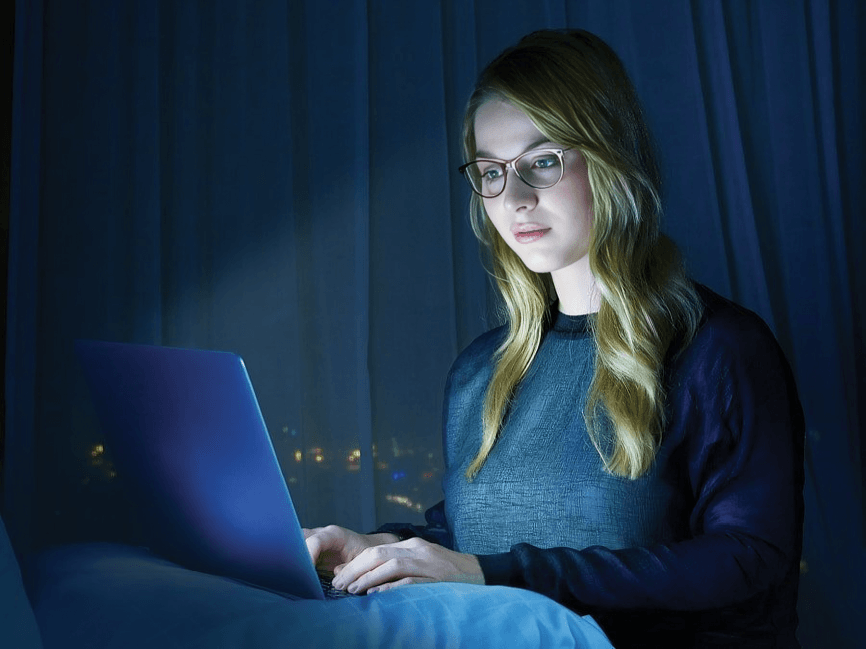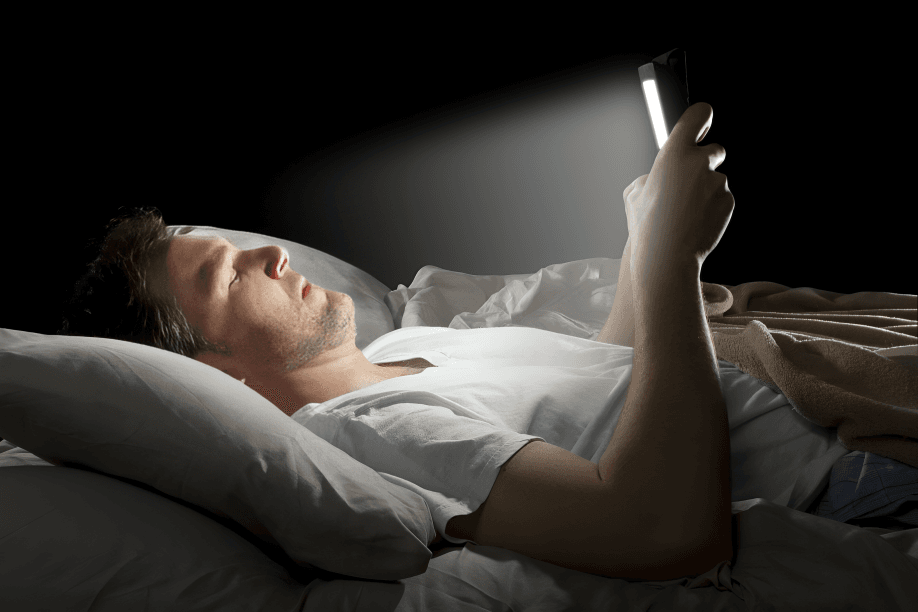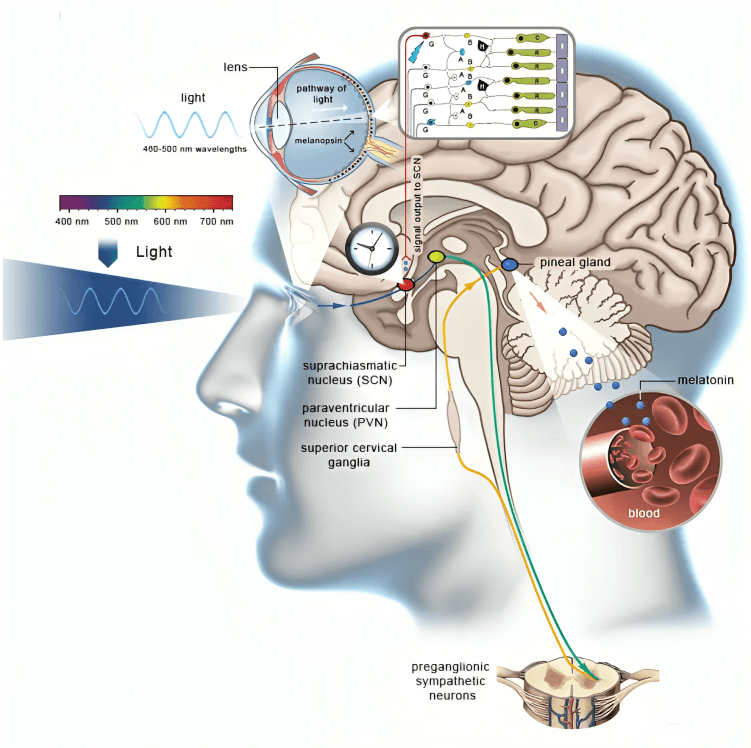
“
Blue light’s impact on sleep is a growing concern in today’s screen-heavy world. This artificial light can disrupt sleep patterns and brain function, especially at night. Learning about blue light’s impact on sleep can help protect your rest and mental clarity.1
1
”
Blue light exposure, especially from screens, suppresses melatonin production, a hormone crucial for sleep regulation, disrupting sleep patterns and making it harder to fall and stay asleep at night. 1
Prolonged exposure to blue light before bed can delay sleep onset, causing difficulty in achieving a deep sleep cycle, which may result in fatigue and impaired cognitive function the following day. 2
Studies show that blue light exposure in the evening increases alertness and stimulates brain activity, making it more challenging to wind down and relax before going to sleep. 3

Blue light from smartphones, computers, and TVs alters the body’s internal circadian rhythm, leading to disruptions in sleep cycles, which can negatively impact overall mental and physical health.
People who regularly use blue light-emitting devices at night tend to report poorer sleep quality and increased daytime sleepiness, affecting mood, concentration, and performance at work or school. 4
Melatonin, the sleep hormone, typically rises in the evening to prepare the body for sleep. However, exposure to blue light before bedtime inhibits melatonin production, delaying sleep and reducing its quality. 5
Blue light exposure has been linked to cognitive impairment, particularly in areas of attention, memory, and learning, as it interferes with the brain’s ability to rest and recover during sleep. 6
Research indicates that people who use electronic devices emitting blue light in the hour before bed tend to have shorter sleep durations, which can lead to increased stress and reduced mental clarity. 7
Blue light, when absorbed by the retina, not only affects sleep but also plays a role in eye strain, leading to discomfort such as headaches, dry eyes, and blurred vision after prolonged use. 8
The body’s natural circadian rhythm is closely tied to the blue light spectrum. Excessive exposure at night can delay the internal clock, leading to trouble waking up in the morning and poor sleep quality. 9
Chronic exposure to blue light, especially in the evening, has been linked to a higher risk of developing mood disorders such as anxiety and depression due to the disruption of sleep and hormonal imbalances. 10

Blue light exposure late at night alters the sleep-wake cycle, making it harder to wake up refreshed, which can affect the brain’s ability to consolidate memories and perform cognitive tasks the next day.
Studies suggest that blue light exposure before sleep reduces the time spent in REM sleep, which is crucial for cognitive processes like problem-solving, emotional regulation, and memory retention. 11
Research has shown that using blue light-blocking glasses or screen filters before bed can help mitigate its negative effects on sleep, promoting better melatonin production and improving overall sleep quality. 12
Prolonged exposure to blue light before bed reduces the overall duration of deep sleep, which is essential for cell repair, memory formation, and cognitive recovery, ultimately affecting brain function during the day. 13

The frequency of blue light emitted by screens interferes with the natural sleep cycle by signaling to the brain that it’s still daytime, delaying the body’s ability to produce sleep-regulating hormones.
Avoiding blue light exposure at least an hour before bed is recommended to help synchronize the body’s natural circadian rhythm, ensuring better sleep quality and improved brain function. 14
The use of blue light filters on devices or apps designed to reduce blue light emission is one strategy that can help maintain sleep quality and prevent disruption of cognitive function from screen time. 15
Blue light-induced sleep disruption can affect academic and work performance the next day, as sleep deprivation hampers cognitive abilities like memory recall, attention span, and problem-solving skills. 16
Using blue light filters on screens or reducing device usage in the evening can help restore healthy sleep patterns, allowing for better cognitive function, memory retention, and emotional well-being the next day. 17


